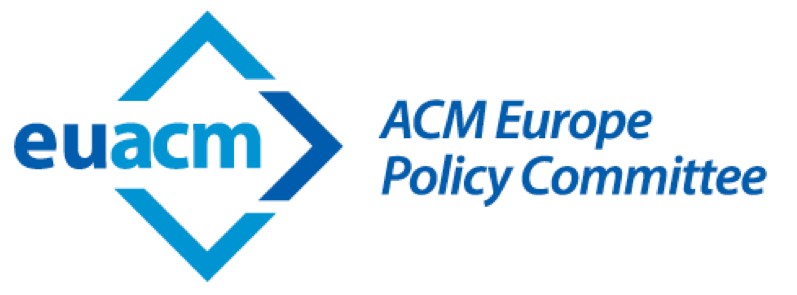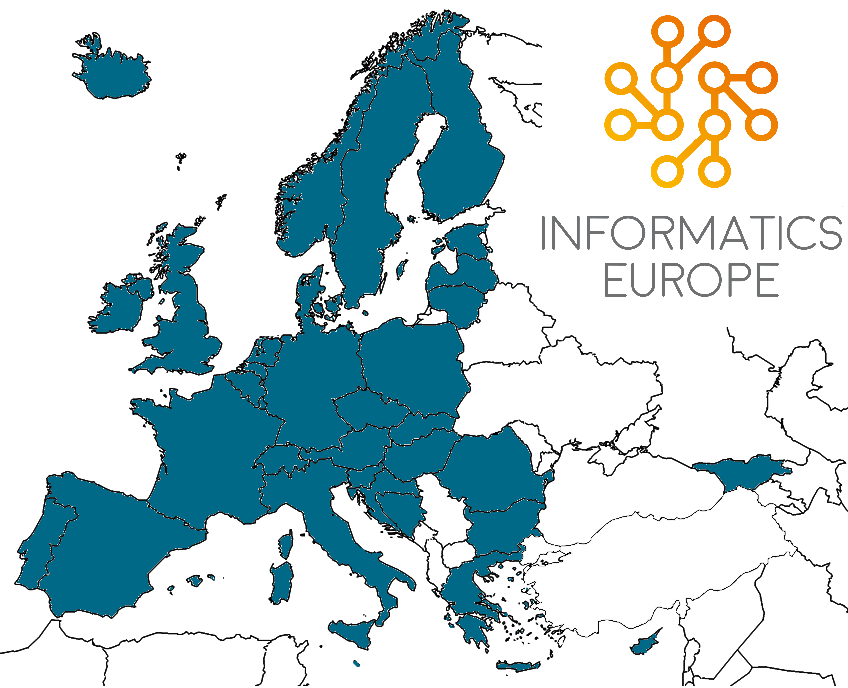Informatics Europe, the ACM Europe Council and the ACM Europe Policy Committee joined members from the European Commission in an event in Brussels
to offer policy makers and industry 10 specific recommendations addressing the challenges posed by the increasing presence of Machine Learning (ML) and Automated Decision Making (ADM) systems in almost every aspect of modern life.
The recommendations were published as a white paper “When Computers Decide: European Recommendations on Machine-Learned Automated Decision Making.” This new report outlines the technical, ethical, legal, economic, societal and educational ramifications of ADM to be considered.
The topics raised in the “When Computers Decide” white paper were the focus of a panel discussion at the Brussels Marriott Hotel Grand Place on 15 March 2018. Panelists were:
- James Larus (Moderator), Professor and Dean of the School of Computer and Communication Sciences at EPFL, Informatics Europe Board
- Oliver Grau, Associate Director of Operations, Intel Visual Computing Institute, ACM Europe Council
- Chris Hankin, Co-Director of the Institute for Security Science and Technology and Professor of Computing Science at Imperial College London, ACM Europe Council Chair
- Johannes Klumpers, Head of the Scientific Advisory Mechanism, EU Commission DG Research and Innovation
- Lucilla Sioli, Director of Digital Industry, EU Commission DG CONNECT
 |
| Chris Hankin, Oliver Grau, Johannes Klumpers, Lucilla Sioli, James Larus (from left to right) at the panel discussion in Brussels |
Substantial advances over the past decade in machine learning techniques have produced systems that sometimes rival or even exceed human ability at challenging, ambiguous, and highly skilled tasks such as image and speech recognition, radiological image analysis, game play, and others. Today, due to very recent breakthroughs in deep neural network technology, these ML-powered ADM systems can both augment human decision making or, in some cases, replace it with a fully autonomous system, leading to potentially massive loss of jobs and de-skilling of the humans who hold them. The ethical questions related to ADM systems require a deep understanding and incorporation of ethics throughout the design of the technology. Social and moral values should no longer be seen simply as “risk factors” or constraints, but as primary drivers and shapers of innovation.
The “When Computers Decide” white paper makes 10 recommendations to policy leaders, discussed by the panel in Brussels and in detail in the report:
- Establish means, measures and standards to assure that ADM systems are fair.
- Ensure that ethics remain at the forefront of, and integral to, ADM development and deployment.
- Promote value-sensitive ADM design.
- Define clear legal responsibilities for ADM’s use and impacts.
- Ensure that the economic consequences of ADM adoption are fully considered.
- Mandate that all privacy and data acquisition practices of ADM deployers be clearly disclosed to all users of such systems.
- Increase public funding for non-commercial ADM-related research significantly.
- Foster ADM-related technical education at the university level.
- Complement technical education with comparable social education.
- Expand the public’s awareness and understanding of ADM and its impacts.
If you have questions about the report and its recommendations and what you can do to help them to reach your national relevant policy makers, please contact James Larus (
|
About Informatics Europe Informatics Europe represents the academic and research community in Informatics in Europe and neighbouring countries. It brings together university departments and research laboratories, creating a strong common voice to promote, shape and stimulate quality research, education, and knowledge transfer in Informatics in Europe. Informatics Europe is a non-profit membership association based in Zurich, Switzerland, with over 120 member institutions across 30 countries. |
 |
|
About the ACM Europe Council The ACM Europe Council aims to increase the level and visibility of Association for Computing Machinery (ACM) activities across Europe. The Council comprises European computer scientists committed to fostering the visibility and relevance of ACM in Europe, and is focused on a wide range of European ACM activities, including organizing and hosting high-quality ACM conferences, expanding ACM chapters, improving computer science education, and encouraging greater participation of Europeans in all dimensions of ACM. |
 |
|
About the ACM Europe Policy Committee The ACM Europe Policy Committee (EUACM), a standing committee of the ACM Europe Council, promotes sound public policy and public understanding concerning a broad range of issues at the intersection of technology and policy. It does so by fostering dialogue and the robust exchange of ideas among the European Commission, governmental bodies in Europe, and the informatics and computing communities on the importance and impact of technology in many spheres. These include: job creation, economic growth, competition, investment, research and development, education and social development, and innovation. |
 |

 Netlogica
Netlogica